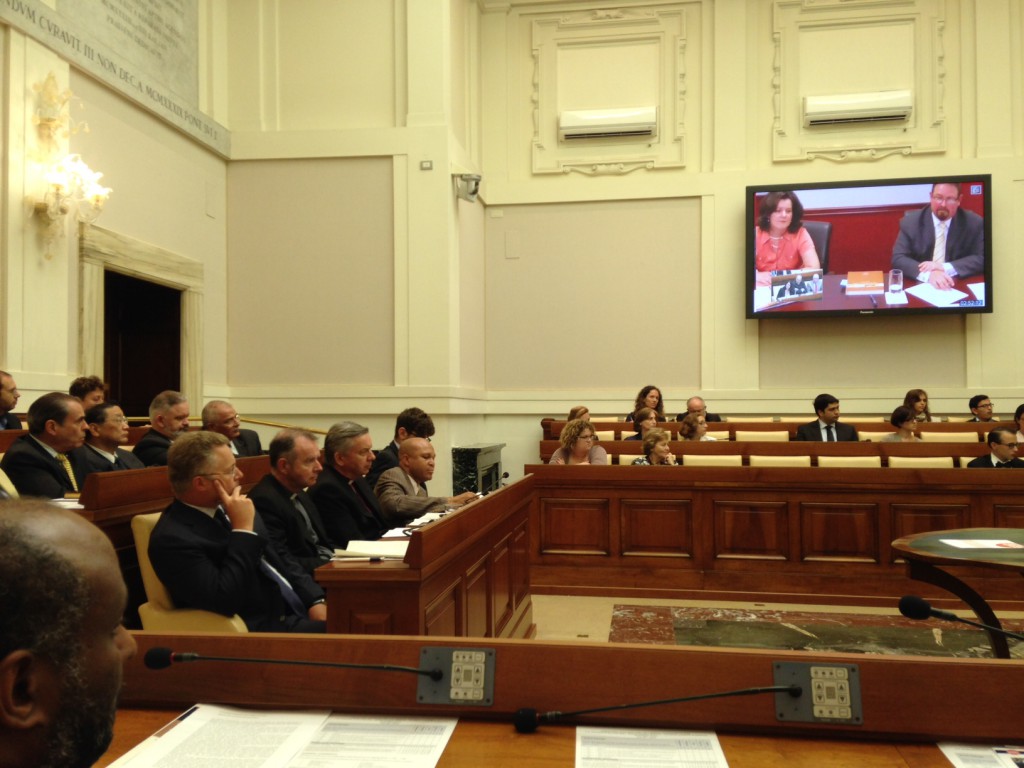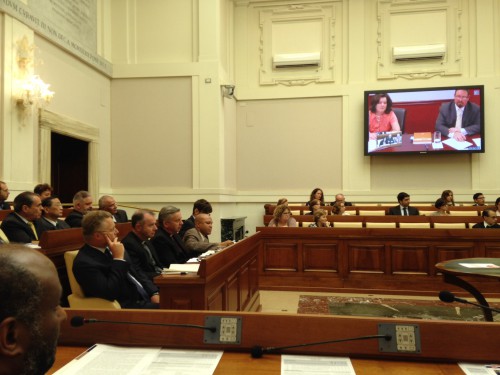30th July 2014
Human trafficking: responding to the Pope’s appeal


In my last blog posting on the concept of “the common good”, I noted that the Archbishop of Canterbury had included UK efforts to tackle human trafficking as one of three specific areas in which, in his view, Her Majesty’s Government was working for the common good.
30 July is the UN World Day against Trafficking in Persons. To mark the event, the Pontifical Academy of Sciences, the Vatican-based Global Freedom Network (an initiative of Pope Francis and Justin Welby) and the US Embassy to the Holy See hosted a round table discussion based on the 2014 Report on Trafficking in Persons produced by the US Department of State. During the discussion, Ambassador-at-Large CdeBaca welcomed “the revitalisation of the anti-trafficking programme in the United Kingdom, especially with the introduction of the Modern Slavery Bill… as part of The Queen’s Speech this year”.
In his review of the state of play across 188 different countries, it was clear that so much more needs to be done. The goal of international efforts remains very practical, based on the “3 P paradigm”: Prevention of the crime, Protection for victims and survivors, Prosecution of the criminals. And it remains clear that while there are real advances in some countries – Ambassador CdeBaca mentioned Chile, Switzerland, the Bahamas, Jordan and Haiti as countries where real progress has been made – the picture is more gloomy in others. Even where the will is there, this global problem remains immense. Only last week, as the US Embassy acknowledged, Pope Francis addressed the issue of trafficking of minors across the US frontier from Mexico and Central America.
As we heard at the round table, human trafficking as a crime is second only to illegal arms dealing in terms of profitability to the criminals. More importantly, every tale of trafficking – for sexual slavery, for forced labour, for organ harvesting – tells a tale of human misery, often involving children. Pope Francis’s call to arms has been important in helping to put this issue back on the international agenda.
Thank you for sharing your thought & experiences , it is heartening to be part of a wider network, working towards a common goal.
It takes a village….
With every good wish,
Anne.(Kelleher).
Communications person,
RENATE-Europe.